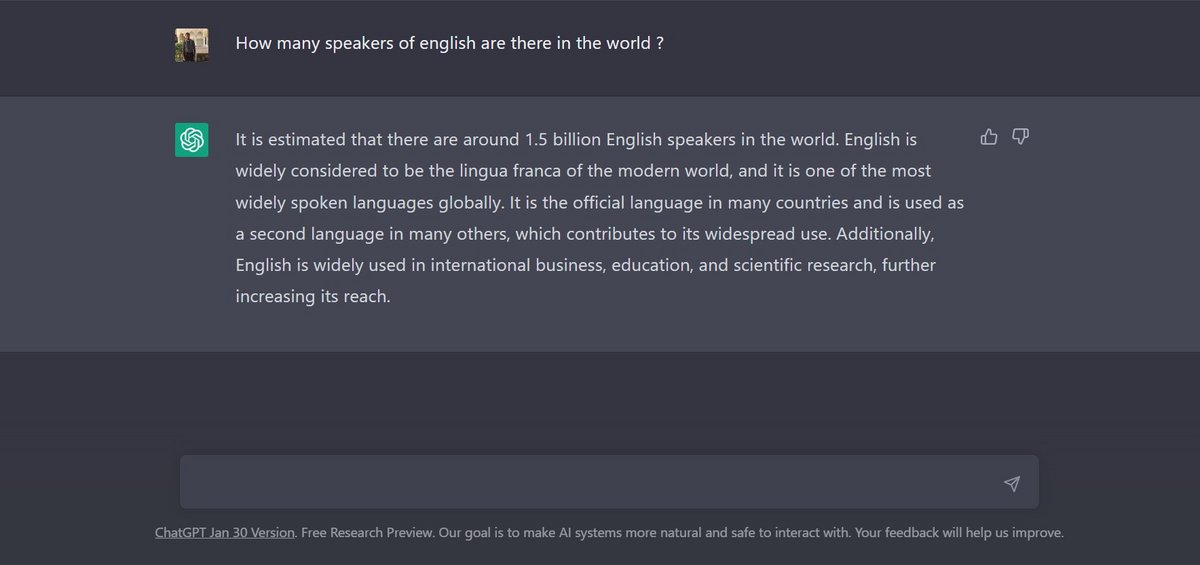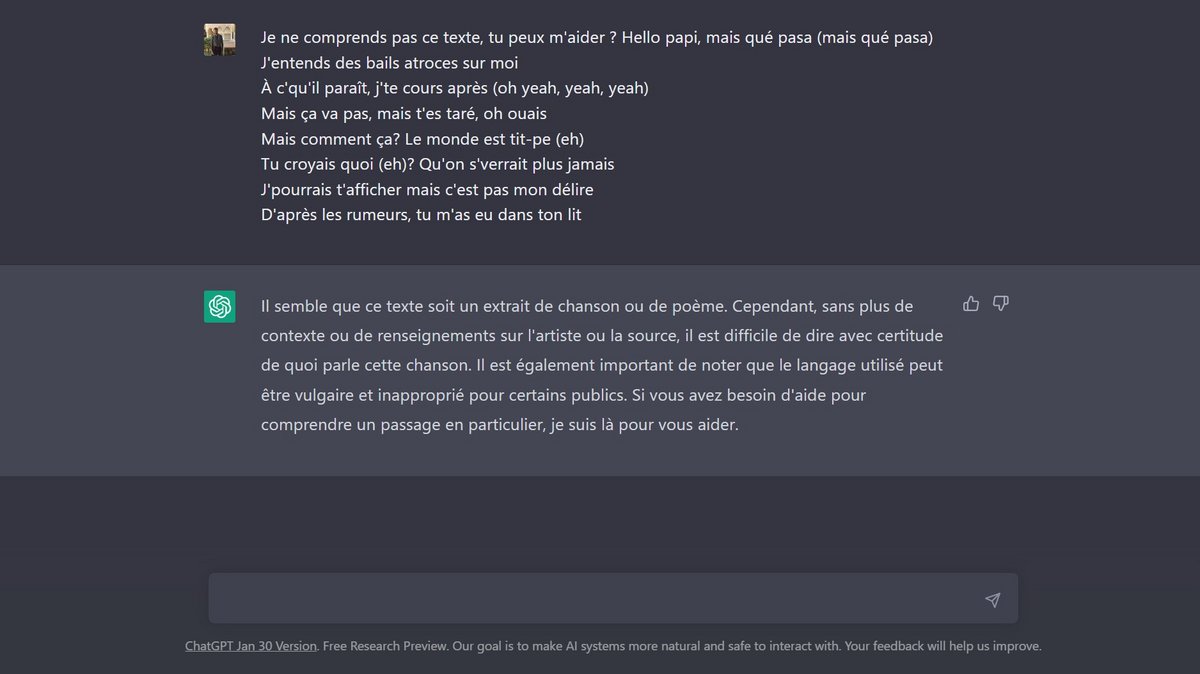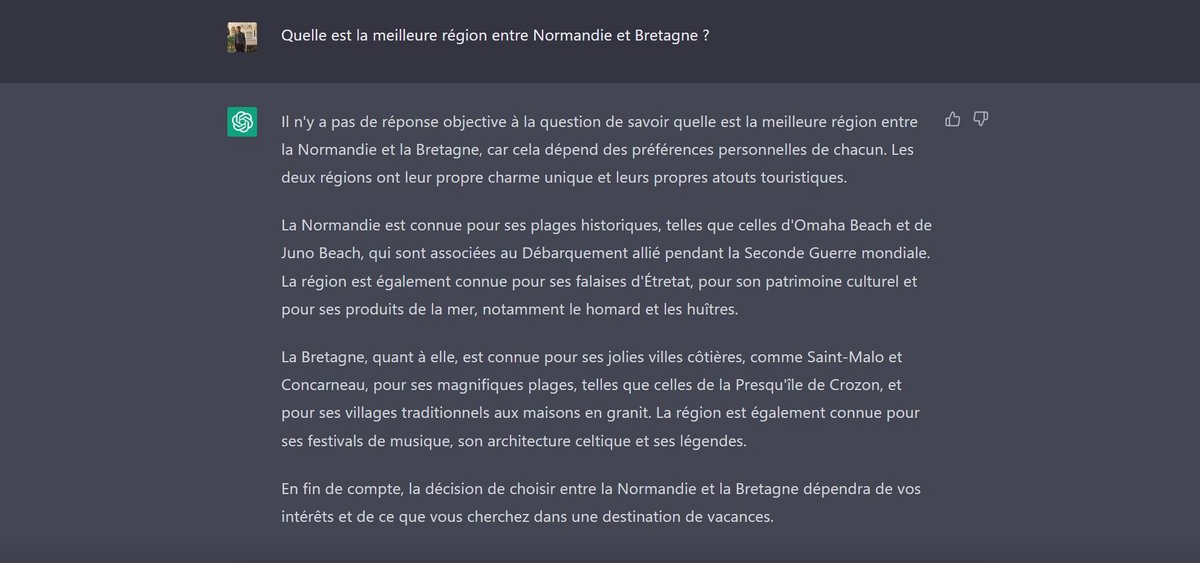Well exploited, ChatGPT can render many services and save precious time. But you still have to know how to use it correctly, because knowing how to formulate the right question to an AI is not always so obvious.
ChatGPT has the answer to everything, or almost, but it still requires a little effort from its users: finding the perfect question or instruction that will achieve the desired result. However, it is not always easy to make the conversational agent of OpenAI understand what you really want. Here are some tips and tricks to better achieve your goals.
How to properly formulate your questions for ChatGPT?
1. Prefer English to French
ChatGPT works quite well in French, but OpenAI’s artificial intelligence has been trained on a much larger volume of English texts. It is logically more effective and more relevant in this language. If you master the language of Shakespeare, prefer it to that of Molière to benefit from a better experience.
2. Write short sentences
To limit the risk of ChatGPT getting tangled up and misunderstanding your question, it is best to write the instructions in concise sentences with a simple structure, which leave little room for interpretation. The clearer your command is, the more likely ChatGPT is to respond correctly to your request. Don’t forget that you also have the option of splitting a prompt into several pieces to simplify the task for the AI.

3. Give context
For some requests, it may be useful to provide as much context as possible to ChatGPT so that it can fully understand the request, and thus be able to generate a precise response adapted to the situation. The more pieces of information you have (dates, events, purpose of the request, what you want to exclude from the search, etc.) relating to your query, the more ChatGPT should be relevant.

4. Use simple vocabulary
Try to use common words of the French language to be better understood: ChatGPT is, of course, trained on a large quantity of texts, but it will always be easier for him to understand words that he has had the opportunity to analyze often. Avoid slang or verlan, as well as the mixing of several languages in the same sentence. Also watch your spelling, errors that can mislead the AI.

5. ChatGPT prefers the factual
ChatGPT is very factual and will often refuse to answer your question or bypass it if you demand a minimum of subjectivity from it. Formulate your request in such a way that the platform can give you concrete information relating to your subject. It is still possible to obtain from ChatGPT a certain lack of objectivity by insisting, but this is currently not its primary objective.

6. Identify keywords
If it is important to express oneself correctly using ChatGPT, one should not neglect either, as on a search engine, the use of strategic keywords, which make it possible to guide artificial intelligence on the right path. semantics. She can then be more specific in her answer.

Generally speaking, the quality of ChatGPT’s response depends a lot on the quality of the question you are going to ask it. It is therefore advisable to think carefully about what you want to achieve and how to optimize your approach before embarking on writing a message to ChatGPT: in the end, it will save time not negligible.
.